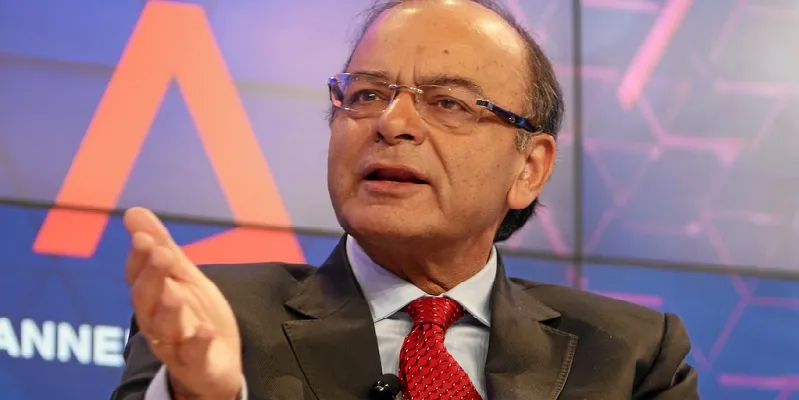India makes fastest climb up WEF's Global Competitiveness Index to 39th place
India climbs steadily in the Global Competitiveness Index and improves its ranking by 16 places for the second year in a row. It is now placed 39th among 138 countries, ahead of BRICS countries other than China.
Union Finance Minister Arun Jaitley said in a release,
It is an extremely positive development. Data released today by the World Economic Forum (WEF) shows that India’s ranking in the Global Competitiveness Index (GCI) has improved by 16 places for the second year in a row. According to the latest ranking, he said that India is placed 39th among 138 countries, ahead of BRICS countries other than China which is ranked 28th.
Jaitley added that India’s rank has steadily improved from 71 in 2014-15 to 55 in 2015-16 and to 39 in the latest report. With this improvement in its ranking, India has covered a long distance and is well on its way to emerge as a major player in the global economy.

The Global Competitiveness Index released by the World Economic Forum is one of the major studies that indicates how a country scores in the scale of global competitiveness. The Index is calculated by aggregating indicators across 12 pillars which again are clubbed together in three broad sub-indices, namely basic requirements, efficiency enhancers and innovation and sophistication factors. The report covers both business and social indicators which, directly or indirectly, impacts the competitiveness of the country in the global arena.
The landmark improvement is in consequence of the structural reforms and policy initiatives taken by the government in the last two years and is viewed as an encouragement to continue with the agenda of reforms which would further streamline economic decision-making and help move up on the index of global competitiveness.
The 12 pillars underlying GCI include institutions, infrastructure, macroeconomic environment, health and primary education, higher education and training, goods market efficiency, labour market efficiency, financial market development, technological readiness, market size, business sophistication and innovation. India’s competitiveness has improved this year across the board, in particular in goods market efficiency, business sophistication and innovation. The macroeconomic environment also improved due to better monetary and fiscal policies and lower oil prices.
The report analyses how India’s competitiveness score had stagnated between 2007 and 2014 till the new government took office and undertook a range of reforms including opening the economy to foreign investors and international improvements in infrastructure which, were small and faltering during most of the past decade, but which actually picked up after 2014 when the government increased public investment and sped up the approval procedures.
Also read : The New Development Bank (NDB) formed by the BRICS nations might be a game changer for India
Similarly, the institutional environment deteriorated until 2014, as mounting governance scandals and inefficiencies led to a loss of trust in public administration. Macroeconomic conditions also followed a similar path and the country was able to keep a lid on inflation and reduce both the current account and fiscal deficits. India also ranks eighth in the strength of investor protection. There is, however, no room for complacency and government will continue to focus on areas which need improvement. In the coming months and years, significant improvement in goods market efficiency may be expected from the implementation of the Goods and Services Tax, which will reduce fragmentation of the domestic market.







